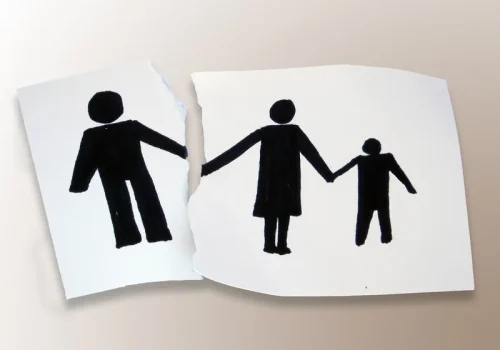Alcohol during pregnancy: Effects and more

Here are some questions you may have about alcohol and drinking while you are pregnant. FASD is a term for a range of lifelong conditions that can occur in individuals who were exposed to alcohol before birth and often lead to disability. “There is no safe level of alcohol use during pregnancy,” Garry explains, citing guidance from the American Congress of Obstetricians & Gynecologists. “Obviously the take home message is, if you drink, avoid pregnancy,” Chambers says. Christina Chambers Ph.D., M.P.H., a professor of pediatrics at UCSD and Director of Clinical Research for the Department of Pediatrics at UCSD and Rady Children’s Hospital, is studying the prevalence of FASD. She tells SELF that, in some communities, 2 to 4 percent of first-grade-age children have FASD.
Are non-alcoholic drinks safe during pregnancy?
The study found that some pregnant women may have had just one drink — say, a glass of bubbly at a special event such as a wedding; others reported consuming a drink or two more regularly. In other words, so little data is available that there is no way to establish a “safe” amount or time to drink—if one even exists. Alcohol is a neurotoxin that can be freely passed from the mother to a fetus through the placenta, harming development and in cases causing structural abnormalities in the brain. If you’re breastfeeding, you can still enjoy a beer, but doing so safely is all about moderation and timing. The CDC recommends drinking no more than the equivalent of one alcoholic beverage at a time.
Understand the Risks of Fetal Alcohol Syndrome
We know drinking heavily during pregnancy is not safe for the baby. We are less sure about the risks of low to moderate drinking, and until we have better information, it’s understandable that health organizations and providers would advise complete abstinence from alcohol. Almost all national health organizations recommend complete abstinence when it comes to drinking during pregnancy, while some obstetricians – including myself – say it’s OK to have a drink now and then. Some doctors recommend that you completely avoid alcohol when you’re expecting; others say that occasional light drinking is unlikely to harm your baby. Furthermore, three in four women who would like to get pregnant as soon as possible report drinking. Heavy drinking while pregnant (around 5 drinks a day) can also lead to premature birth, or having a baby before 37 weeks.
Effects of Alcohol on the Fetus’s Development
An FASD Family Navigator can be reached to provide one-on-one support from 9 a.m. Eastern time Monday through Friday via phone or by completing an online support request form. If you used any amount of alcohol while you were pregnant, talk with your child’s healthcare provider as soon as possible and share your concerns.
- And while drinking early in pregnancy is never recommended, there’s little reason to panic if you had a few cocktails.
- For those planning to stop contraceptive use in order to conceive, Charness says, “You should not drink at all.”
- Charness says that in some parts of the U.S., the percentage of children affected with full-blown, severe FASD could be as high as 5 percent.
- Studies indicate that FASD can have lifelong implications and is irreversible.
- Copyright 2024 by the American College of Obstetricians and Gynecologists.
Drinking while pregnant: What we know and what we don’t

Light drinking can raise the risk of miscarriage in the first trimester by as much as 30 percent and a second trimester miscarriage by as much as 70 percent, according to a Danish study of more than 90,000 pregnancies. Although having a couple of drinks before you knew you were pregnant isn’t ideal, alcohol during pregnancy it’s somewhat common. While you may have heard that an occasional glass of wine is okay, the truth is that there’s no known safe amount of alcohol during pregnancy. Drinking alcohol during pregnancy increases the risk of miscarriage, premature birth and your baby having a low birthweight.

- While we know any drinking during pregnancy can be risky, we don’t have a full picture of the effects of alcohol in early pregnancy.
- From the What to Expect editorial team and Heidi Murkoff, author of What to Expect When You’re Expecting.
- The CDC advises that there is no safe amount of alcohol during pregnancy and that individuals need to avoid it altogether.
- A report from Canada describes similar results, but a smaller percentage (6.7%) of women consuming alcohol in pregnancy.
Some pregnant people craving a cocktail might turn to a non-alcoholic beer or wine as the safe option. But some non-alcoholic beverages contain alcohol, meaning that mocktail with that non-alcoholic rosé might not be a good idea. Most birthing and breastfeeding parents can safely drink a beer or two after their baby is born — provided they have clearance from their healthcare provider. The more you drink, the more your baby’s growth will be affected and the less healthy your baby will be. However, if you cut down or stop drinking altogether, your baby will start to grow at a normal rate. Stopping drinking at any point during pregnancy can be beneficial.
Can You Drink Non-Alcoholic Beer While Pregnant?
- Find out what experts say about whether light drinking is risky when you’re pregnant.
- The CDC suggests that up to 1 standard drink per day is not known to harm the infant, especially if a person waits at least 2 hours before nursing.
- Growth and central nervous system problems (for example, low birthweight, behavioral problems) can occur from alcohol use anytime during pregnancy.
It’s also difficult to predict the impact of drinking on any given pregnancy because some women have higher levels of the enzyme that breaks down alcohol. But experts say the lack of evidence is not a reason to challenge the current advice https://ecosoberhouse.com/ to avoid alcohol entirely during pregnancy. “We compared drinking once or twice a week [at low levels] compared to not drinking at all,” explains study author Luisa Zuccolo, a health epidemiologist at the University of Bristol.
Setting up a study examining alcohol consumption during pregnancy would be risky for the babies and no institution would allow such a study to continue. Unfortunately, that confusion may have contributed to an increase in women drinking during pregnancy. Centers for Disease Control (CDC), 10 percent of pregnant women in the United States reported drinking alcohol in the last 30 days. Centers for Disease Control (CDC), fetal exposure to alcohol is one of the main preventable causes of birth defects and developmental problems in this country.

Boosting your child’s immune system

This new guideline is designed to prevent fetal alcohol spectrum disorders (FASD) which are caused by a fetus being exposed to alcohol in utero. The trouble with guidelines that recommend total abstinence is they don’t involve nuance. There are certainly women who truly have a problem with alcohol and whose drinking puts their babies at risk. For women who do not have an unhealthy relationship with alcohol and who want to have a drink on a special occasion, they shouldn’t fear being judged or have others make that decision for them.
